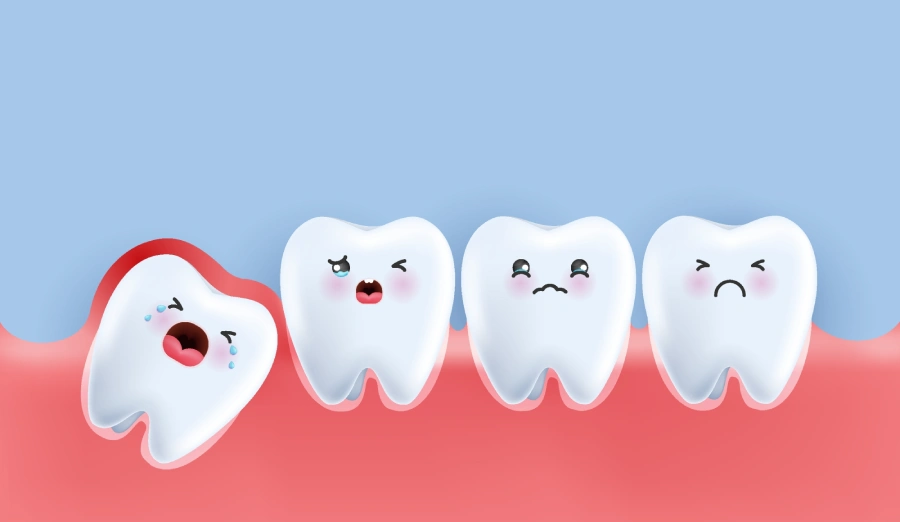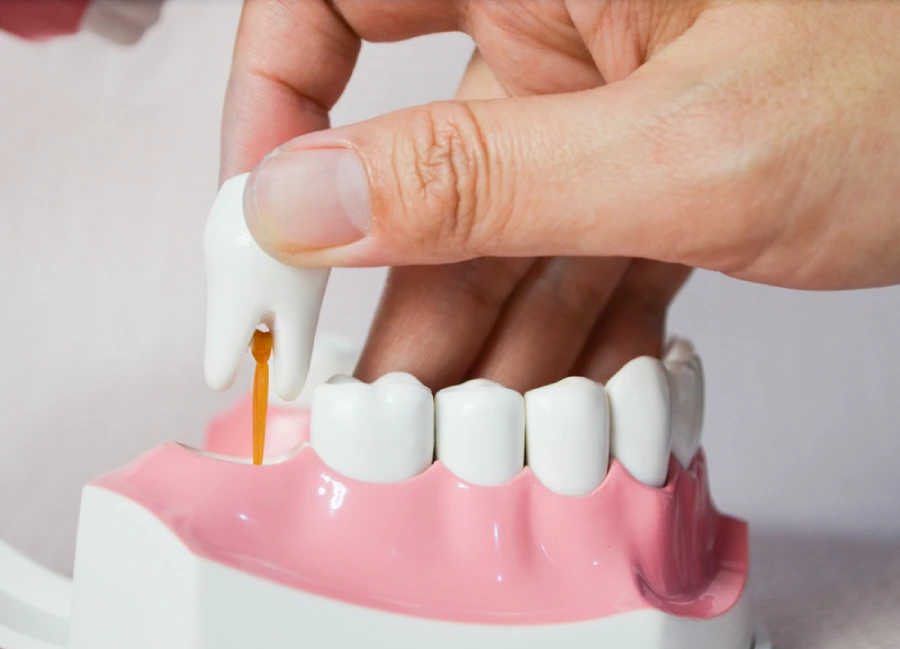Early Signs of Tooth Decay in Children
Are children too young to worry about different tooth decay stages? Unfortunately, the answer is no. While many parents think that tooth decay is an adult problem, the statistics say otherwise. For example, research from the U.S Centers for Disease Control and Prevention (CDC) shows that about half of U.S. children have at least one decayed tooth. The National Institute of Dental and Craniofacial Research says that 42% of children aged 2 to 11 will develop at least one cavity.
Tooth decay is a serious juvenile dental problem considered to be the most common chronic disease in children. As such, it’s important for parents to know the early signs of tooth decay in toddlers. Here at The Super Dentists, we see the devastating effects of various stages of tooth decay and how it impacts our young patients.
Knowing how to spot the signs of tooth decay, and (more importantly) avoiding tooth decay in the first place, should be at the top of every child and parent’s list.
With that in mind, we thought it was a great time to explain some early warning signs of tooth decay, information about tooth decay stages, and different oral care habits you can promote to keep those cavities at bay.
What Are The Main Causes of Tooth Decay in Children
Children love their cookies and candies, and it is those things that contribute to tooth decay in children. When kids eat foods high in sugars and starches, bacteria is left on the teeth. Some of the main culprits are:
- Raisins
- Candy
- Cake
- Cereal
- Bread
- Milk
- Fruit juice
When food, acid, bacteria and saliva combine in the mouth they create plaque that sticks to the teeth. This plaque will eat away at the tooth enamel, causing cavities. Liquids like juice and sports drinks are particularly harmful because they coat the entire tooth with acidic bacteria.
When children snack throughout the day and drink their sugary drinks, the plaque builds. Combine this with poor dental hygiene and a lack of fluoride in the water and you have yourself a recipe for cavities.

How to Spot Tooth Decay Stages: What Kids Say, What Parents See
Like any other disease and some preventable problems, tooth decay in children and adults has telltale signs and early warning signals. Pay attention to these in order to keep your child’s oral healthcare at an optimal level.
If kids complain about the following symptoms, early signs of tooth decay might already be progressing:
- Sensitivity to hot or cold beverages & food. In early signs of tooth decay, the small pits and holes in teeth enamel expose nerve endings to food and beverages. One of the most common early signs of tooth decay is sharp or dull pain associated with taking in hot or cold foods & beverages. If your child complains of tooth pain when eating certain foods or consuming certain beverages, tooth decay might be the culprit.
- General toothache. A dull, chronic toothache is often a symptom of an early sign of tooth decay. Similar to temperature sensitivity, any toothache should be addressed immediately. Schedule an appointment with your dentist to find out what’s going on.
- Trouble focusing at school. When your child’s teeth hurt, they can’t concentrate on learning. Kids with dental disease are three times more likely to miss school and four times more likely to get a lower than average GPA. Kids who don’t like their smile may not want to draw attention to themselves or want to speak up in class.
For parents, pay attention to these possible signs of tooth decay:
- Tooth discoloration. If your child’s teeth have black or brown spots or similar discoloration, it’s time to see the dentist. These spots are often the early-early warning signs of the most common symptom of tooth decay: cavities.
- Bad breath. Talk about an in-your-face warning sign for tooth decay! Bad breath is due to excessive bacteria in the mouth cavity, and this bacteria is more prevalent during the early tooth decay stages.
- Bleeding gums. Tooth decay and gum disease (gingivitis) sometimes go hand in hand. If you detect bleeding gums, schedule a dentist appointment for a checkup.
While these are the most common symptoms of tooth decay stages, also look out for pain when biting or unpleasant taste in the mouth. Keep the lines of communication open with your child about their teeth so you can address the issue before it worsens.
What Types of Treatment Will a Pediatric Dentist Recommend?
The Super Dentists recommends that children with tooth decay get composite fillings, which are natural looking tooth colored fillings, to fill in the hole and protect the tooth from more damage. Composite fillings are attractive and easy to put in. The dentist simply removes the decayed portion of the tooth and replaces it with the filling. Composite fillings are designed to be durable and last many years as long as your child has good dental hygiene.
Depending on the severity of the cavity, your dentist may recommend indirect restoration in the form of inlays, veneers, bridges or crowns. Another option is a newer treatment called silver diamine fluoride. During the procedure, a liquid is used to reduce and prevent tooth decay until your child’s primary teeth fall out.
Preventing Tooth Decay 101
So, what are the best ways to prevent tooth decay? Here’s a handful of things that can help – today!
For younger kids (up to 6 years old):
- Brush 2-3 times daily. This one’s obvious, but it’s the most important factor for preventing early stage tooth decay. The American Dental Association recommends that children brush two times a day for 2 minutes and floss once a day.
- Watch the bottle time. If your child still feeds from a bottle, remove the bottle when they’re sleeping. The sugars in liquids like milk, juice or formula can contribute to tooth decay, even in children as young as 1-2 years old!
For older kids (6 years and older):
- Promote a healthy diet. Everyone knows kids love sugar. But too much sugar is a major reason for high rates of tooth decay in children. Dairy products, nuts, veggies, and other snacks are a great substitute for chips, chocolate, hard candy, etc. When packing lunches, get creative with snacks so your kids won’t miss sweets.
- Floss every day. Kids should get into the habit of flossing at least once per day. Flossing helps eliminate plaque buildup and is the perfect complement to a regular brushing routine.
If you’re not sure about the current state of you child’s oral health, schedule an appointment at any of our six San Diego offices. We also offer parent dentistry services as well – stop by for a checkup while your children are at their own appointment! Thanks for visiting The Super Dentists!









